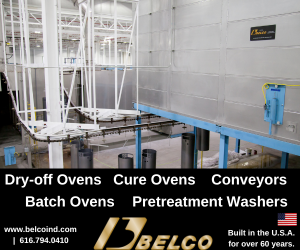Testing for All Eight TCLP Metals
Question: We are having a "spirited" discussion among our EH&S group whether or not we have to test for all of the eight TCLP metals in order to determine whether or not a material is a RCRA hazardous waste, in this case our wastewater filter press cake from our captive metal finishing operations.
Question:
We are having a "spirited" discussion among our EH&S group whether or not we have to test for all of the eight TCLP metals in order to determine whether or not a material is a RCRA hazardous waste, in this case our wastewater filter press cake from our captive metal finishing operations. The waste is not a RCRA hazardous waste, and my predecessor has had this waste tested for all TCLP metals every six months. I say this is not required and a waste of money, while others disagree. What is your opinion? R.W.
Answer:
I get a little nervous when I am asked to referee a dispute without knowing ALL of the facts and input, but here is my attempt.
First, for our readers’ benefit, the eight TCLP metals are arsenic, barium, cadmium, chromium, lead, mercury, selenium and silver; however, a few states also include other metals such as zinc, copper and nickel.
Under USEPA hazardous waste regulations (40CFR262.11), a generator is required to determine if a waste is RCRA hazardous or not by the following method:
- determine if excluded.
- determine if it is a listed hazardous waste (I assume you have already determined that codes F006 and F019 per 40CFR261, subpart D, do not apply)
- determine if it is a "characteristic" waste (40CFR261, subpart C) by test- ing or "applying knowledge of the hazard characteristic of the waste in light of the materials or the processes used." Under the Toxicity Characteristic Leaching Procedure (40CFR268, Appendix I) paragraph 1.2 specifically states "if a total analysis of the waste demonstrates that individual contaminants are not present, or that they are present, but at such low concentrations that the appropriate regulatory thresholds could not possibly be exceeded, the TCLP need not be run." To perform the TCLP, the amount of leaching solution is 20 times the sample weight. Therefore, if the total constituent concentration of a contaminant is less than 20 times its respective TCLP regulatory level, the actual TCLP could not possibly be exceeded and, therefore, not needed. For example, a filter press cake is found to contain total lead at 50 mg/kg; since the TCLP regulatory level for lead is 5.0 mg/liter, the TCLP need not be run since 50 mg/kg is less than 100 mg/liter (5.0 x 20; also, 1 liter of water weighs 1 kg).
Assuming that you have a good historical record of TCLP data and your metal finishing processes and/or wastewater pretreatment system or chemistries have not changed, then you can apply your "knowledge" that this waste stream continues to be non-hazardous without further testing. However, the disposal facility for the filter press cake likely requires periodic retesting (typically every year or two) of the material and may require all TCLP metals to be tested. Furthermore, we would strongly recommend that you annually test the waste for the few contaminants that could impact its RCRA status and parameters to demonstrate treatment effectiveness. For example, you could test for total solids, pH, total chrome, total lead and TCLP for chrome and lead. After several years and assuming the TCLP chrome and lead concentrations are below regulatory concern, you could test for just total solids, pH, total chrome and total lead, and as long as the total chrome and total lead concentrations do not significantly increase above historical level, you could apply your "knowledge" that the waste passes TCLP. Lastly, we would still recommend a TCLP test for likely present metal(s) once every five to seven years just to be sure. R.W., I hope my opinion helps.
Related Content
NASF/AESF Foundation Research Project #122: Electrochemical Approaches to Treatment of PFAS in Plating Wastewater - 7th Quarterly Report
The NASF-AESF Foundation Research Board has selected a project on addressing the problem of PFAS and related chemicals in plating wastewater streams, studying PFAS destruction via electrooxidation and electrocoagulation. Our last report described the results from experiments of EO with a Magnéli phase Ti4O7 anode on the degradation of eight perfluoroalkyl acids (PFAAs). In this seven quarter report, we describe work to further explore how the degradation of different PFAAs are related to their molecular structures.
Read MoreZinc Phosphate: Questions and Answers
Our experts share specific questions about zinc phosphate and pretreatment
Read MoreExplore Cleaning Chemistry, Metal Finishing Applications and Wastewater Treatment Solutions
Hubbard-Hall Celebrating 175 years of excellence, Hubbard-Hall presents chemistry and equipment.
Read MoreNASF/AESF Foundation Research Project #122: Electrochemical Approaches to Treatment of PFAS in Plating Wastewater - 9th Quarterly Report
The NASF-AESF Foundation Research Board selected a project addressing the problem of PFAS and related chemicals in plating wastewater streams. This report covers the ninth quarter of work (January-March 2023). In this report, we describe our work on evaluating the performance of PFAS degradation by electrooxidation using surface fluorinated Ti4O7 anodes in batch mode.
Read MoreRead Next
Delivering Increased Benefits to Greenhouse Films
Baystar's Borstar technology is helping customers deliver better, more reliable production methods to greenhouse agriculture.
Read MoreEducation Bringing Cleaning to Machining
Debuting new speakers and cleaning technology content during this half-day workshop co-located with IMTS 2024.
Read MoreEpisode 45: An Interview with Chandler Mancuso, MacDermid Envio Solutions
Chandler Mancuso, technical director with MacDermid Envio discusses updating your wastewater treatment system and implementing materials recycling solutions to increase efficiencies, control costs and reduce environmental impact.
Read More











.jpg;maxWidth=300;quality=90)












